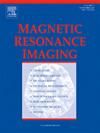Spatial-frequency aware zero-centric residual unfolding network for MRI reconstruction
IF 2.1
4区 医学
Q2 RADIOLOGY, NUCLEAR MEDICINE & MEDICAL IMAGING
引用次数: 0
Abstract
Magnetic Resonance Imaging is a cornerstone of medical diagnostics, providing high-quality soft tissue contrast through non-invasive methods. However, MRI technology faces critical limitations in imaging speed and resolution. Prolonged scan times not only increase patient discomfort but also contribute to motion artifacts, further compromising image quality. Compressed Sensing (CS) theory has enabled the acquisition of partial k-space data, which can then be effectively reconstructed to recover the original image using advanced reconstruction algorithms. Recently, deep learning has been widely applied to MRI reconstruction, aiming to reduce the artifacts in the image domain caused by undersampling in k-space and enhance image quality. As deep learning continues to evolve, the undersampling factors in k-space have gradually increased in recent years. However, these layers are limited in compensating for reconstruction errors in the unsampled areas, impeding further performance improvements. To address this, we propose a learnable spatial-frequency difference-aware module that complements the learnable data consistency layer, mapping k-space domain differences to the spatial image domain for perceptual compensation. Additionally, inspired by wavelet decomposition, we introduce explicit priors by decomposing images into mean and residual components, enforcing a refined zero-mean constraint on the residuals while maintaining computational efficiency. Comparative experiments on the FastMRI and Calgary-Campinas datasets demonstrate that our method achieves superior reconstruction performance against seven state-of-the-art techniques. Ablation studies further confirm the efficacy of our model's architecture, establishing a new pathway for enhanced MRI reconstruction.
部分频率感知的MRI重构零中心残差展开网络。
磁共振成像是医学诊断的基石,通过非侵入性方法提供高质量的软组织对比。然而,MRI技术在成像速度和分辨率方面面临着关键的限制。延长扫描时间不仅会增加患者的不适,而且还会导致运动伪影,进一步损害图像质量。压缩感知(CS)理论能够获取部分k空间数据,然后可以使用先进的重建算法有效地重建以恢复原始图像。近年来,深度学习被广泛应用于MRI重建,旨在减少k空间欠采样导致的图像域伪影,提高图像质量。随着深度学习的不断发展,k空间中的欠采样因子近年来逐渐增加。然而,这些层在补偿未采样区域的重建误差方面受到限制,阻碍了进一步的性能改进。为了解决这个问题,我们提出了一个可学习的空间频率差异感知模块,它补充了可学习的数据一致性层,将k空间域差异映射到空间图像域以进行感知补偿。此外,受小波分解的启发,我们通过将图像分解为均值和残差分量来引入显式先验,在保持计算效率的同时,对残差施加精细的零均值约束。在FastMRI和卡尔加里-坎皮纳斯数据集上的对比实验表明,我们的方法与七种最先进的技术相比具有优越的重建性能。消融研究进一步证实了我们的模型架构的有效性,为增强MRI重建建立了新的途径。
本文章由计算机程序翻译,如有差异,请以英文原文为准。
求助全文
约1分钟内获得全文
求助全文
来源期刊

Magnetic resonance imaging
医学-核医学
CiteScore
4.70
自引率
4.00%
发文量
194
审稿时长
83 days
期刊介绍:
Magnetic Resonance Imaging (MRI) is the first international multidisciplinary journal encompassing physical, life, and clinical science investigations as they relate to the development and use of magnetic resonance imaging. MRI is dedicated to both basic research, technological innovation and applications, providing a single forum for communication among radiologists, physicists, chemists, biochemists, biologists, engineers, internists, pathologists, physiologists, computer scientists, and mathematicians.
 求助内容:
求助内容: 应助结果提醒方式:
应助结果提醒方式:


